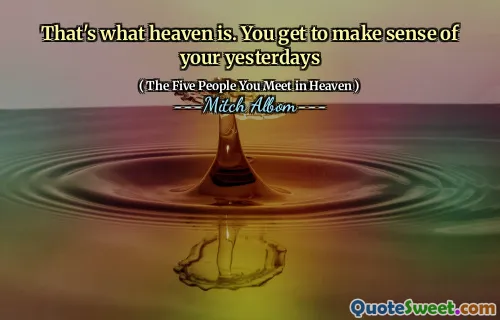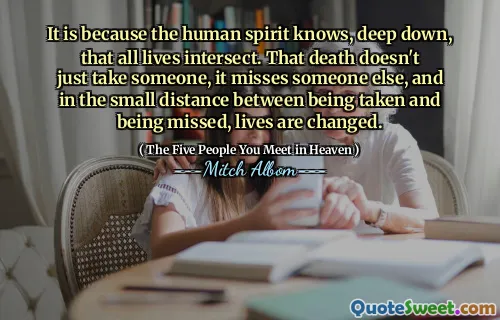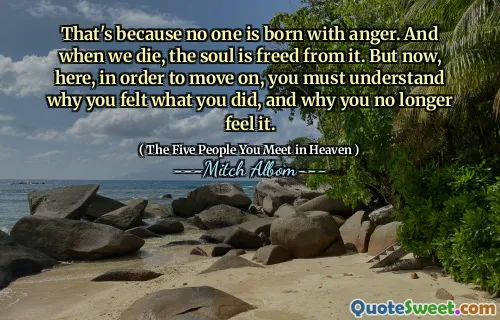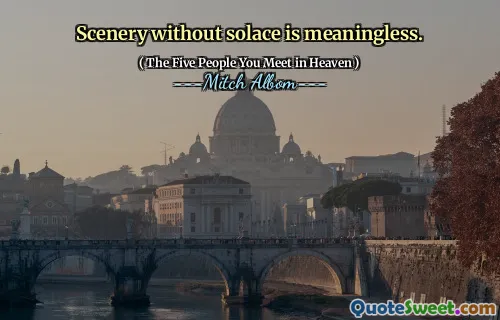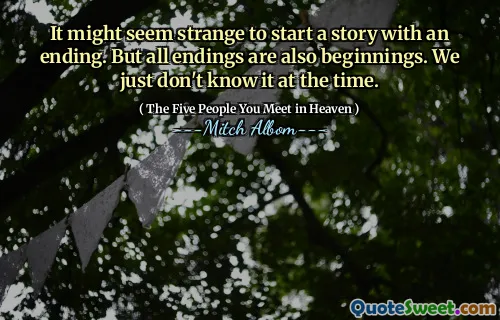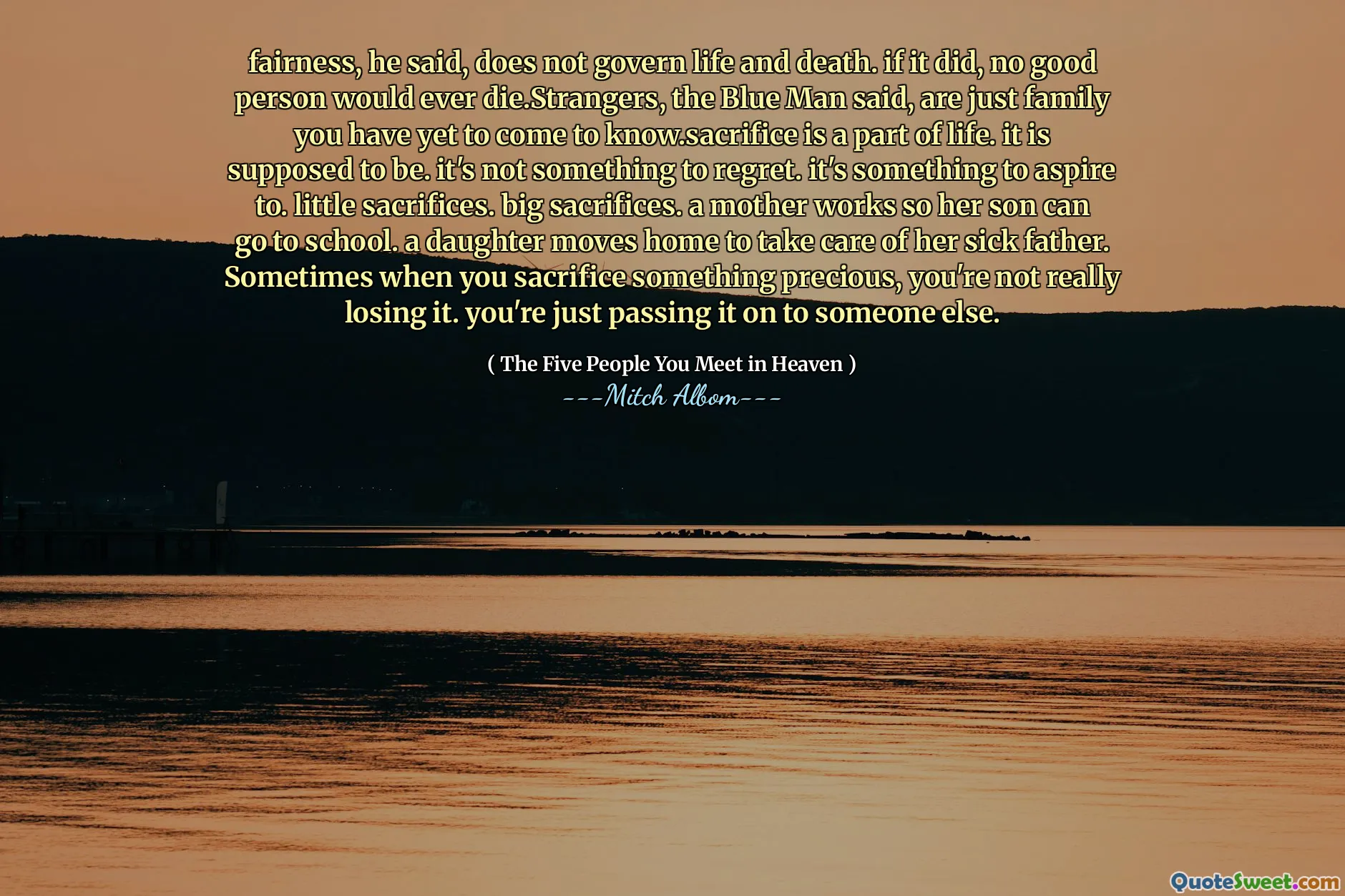
fairness, he said, does not govern life and death. if it did, no good person would ever die.Strangers, the Blue Man said, are just family you have yet to come to know.sacrifice is a part of life. it is supposed to be. it's not something to regret. it's something to aspire to. little sacrifices. big sacrifices. a mother works so her son can go to school. a daughter moves home to take care of her sick father. Sometimes when you sacrifice something precious, you're not really losing it. you're just passing it on to someone else.
In Mitch Albom's "The Five People You Meet in Heaven," the character of the Blue Man imparts profound wisdom about life, emphasizing that fairness does not dictate life and death, as evidenced by the reality that good people can suffer grievously. He suggests that strangers are simply family members waiting to be recognized, highlighting the interconnectedness of human experience. This perspective invites us to reflect on our relationships and the unseen bonds we share with others.
The Blue Man also teaches that sacrifice is inherent to life; it should not be seen as a burden but rather embraced as a noble endeavor. Acts of sacrifice, whether small or significant, reveal love and commitment, such as a mother working tirelessly for her child's future or a daughter caring for her ailing father. He reassures us that sacrificing something dear often means passing it on to someone else, reinforcing the idea that such acts enrich both the giver and the recipient.
